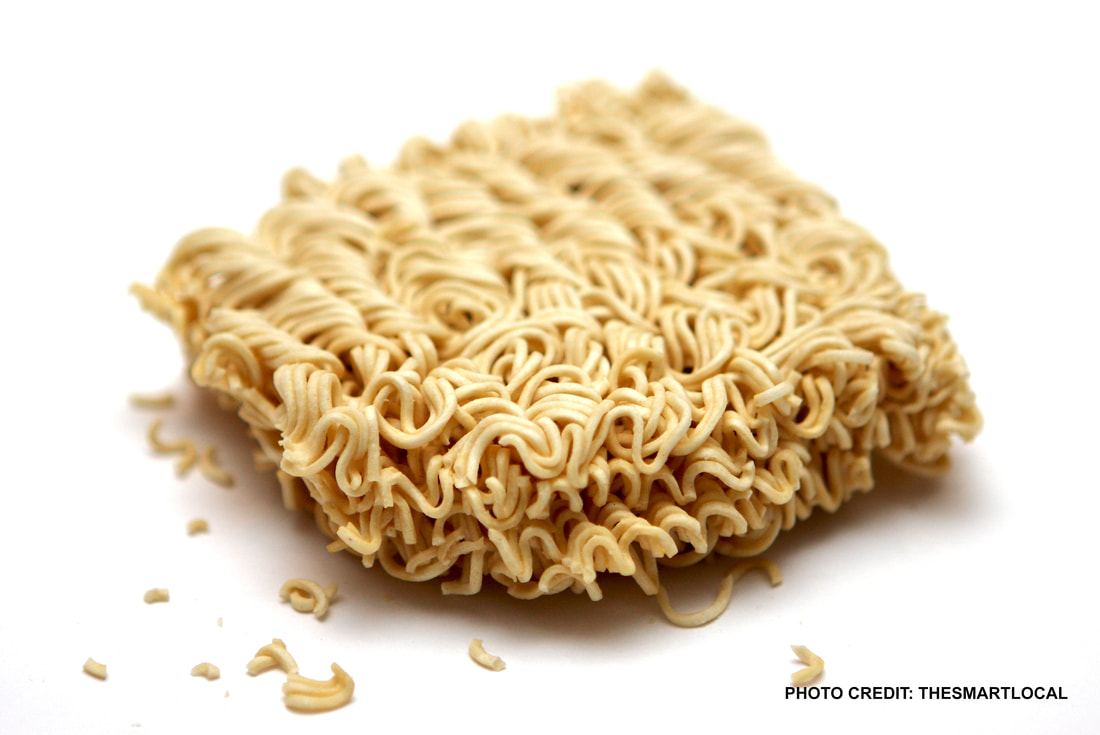Maida based instant noodles could be hurting your health
April 28, 2019
Instant noodles are pre-cooked noodles, processed using flavoring powder and seasoning oil and are usually sold in individual packets or cups and bowls. Mostly they are prepared using ingredients like maida - the milled, refined and bleached version of wheat flour, salt and palm oil. They are laced with artificial colour, seasoning, preservatives and monosodium glutamate (MSG).
Since they are made for longer shelf life, they are highly processed. They are low on nutrition, high on fat, carbs, calories and sodium and low in calories, fiber and protein. Maida Maida is a refined form of whole wheat flour from which most of its nutrients and fibre are sucked out. The bran and germ are the most nutritious parts of whole grains. They contain high amounts of many nutrients, such as, fibre, vitamins, iron, magnesium, phosphorus, manganese and selenium. During the refining process, the bran and germ are removed along with all the nutrients they contain. This leaves the flour with almost zero vitamins, minerals and fibre. The stripped down refined flour is very easy to digest, so it sends blood sugar and insulin skyrocketing, which can lead to numerous health problems such as: Weight gain: Maida is high in carbohydrates. As far as body’s metabolism is concerned, carbohydrates help the secretion of insulin, which in turn encourages fat to be produced and stored. This leads to weight gain and obesity. Spikes up sugar levels: Maida lacks nutrients and fibre. It is digested quickly and has a high gycemic index, which leads to rapid spikes in blood sugar and insulin levels after meals. Increases bad cholesterol: Regular consumption of maida increases bad cholesterol levels (LDL). High blood pressure: Maida comes in the category of refined carbohydrates that increases weight, inflammation and insulin resistance, all of which are known to increase the risk of high blood pressure. Heart disease: Maida may increase blood triglycerides, blood sugar levels and cause insulin resistance. All of these are major risk factors for heart disease. Instant noodles Wong Wen Yin, Dietetic & Food Service Department, Pantai Hospital Kuala Lumpur views instant noodles as unhealthy, as she says that although these noodles are FDA approved, it is bad nutritional wise due to the chemicals that it contains. “If you read the labels, it consists mostly of carbohydrates, high in sodium and high in fat. If you want to consume it once in a while, no problem, but definitely not every day. “Long term effect, we can anticipate, that it is unhealthy for the body, because when you eat instant noodles, you deprive your chances of having a healthy meal with vitamins and minerals. "Mee, mee hoon, instant noodles, kway teow and pasta are all processed foods with preservatives inside. “Instant noodles is added with sodium, pasta doesn’t have sodium but has artificial agents to keep it dry and in shape for a longer period of time, mee hoon is processed similar to pasta, while mee and kway teow contains much more oil and boric asid. “When we look at the nutrients, the additives - the healthier choice would be mee hoon as the fat content is relatively low,” she said while suggesting brown rice mee hoon and brown rice pasta as healthier options. |
- IN THE SPOTLIGHT
-
HEALTH CONDITIONS
- ANTIMICROBIAL RESISTANCE
- ARTHRITIS
- ASTHMA
- BACK PAIN
- BRAIN DISORDERS
- BREAST CANCER
- CANCER
- CARDIOVASCULAR DISEASE
- CERVICAL CANCER
- CORNEAL ULCER
- CORONAVIRUS DISEASE (COVID-19)
- DEMENTIA
- DENGUE
- DENTAL PROBLEMS
- DIABETES
- DRUG ABUSE
- ECZEMA
- ERECTILE DYSFUNCTION
- EYE
- FIBROIDS
- GASTROINTESTINAL DISEASES
- INFLUENZA (FLU)
- HEADACHES & MIGRAINES
- HEPATITIS
- HIV & AIDS
- JOINT PAIN
- KIDNEY DISEASE
- LUNG CANCER
- LUPUS
- MELASMA
- MENTAL HEALTH
- MOUTH-AND-TEETH
- OBESITY
- OSTEOPOROSIS
- POLYCYSTIC OVARY SYNDROME
- POMPE DISEASE
- PSORIASIS
- SEXUAL & REPRODUCTIVE HEALTH
- SKIN
- SLEEP
- STROKE
- DISABILITIES & SPECIAL ABILITIES
- NURSING RESOURCES
- DIGITAL HEALTH
- HEALTH PRODUCTS & SERVICES
- RELATIONSHIPS
- PARENTING
- EMPOWERING WOMEN
- MEN'S WELLNESS
- GOLDEN YEARS
- ACTIVE LIFE HUB
- NUTRITION
- COMPLIMENTARY MEDICINE
- AMBULANCE AND FIRST AID GUIDE
- Community clinics/ Klinik Komuniti
- Government Dental Clinics / Klinik Pergigian Kerajaan
- ABOUT US


